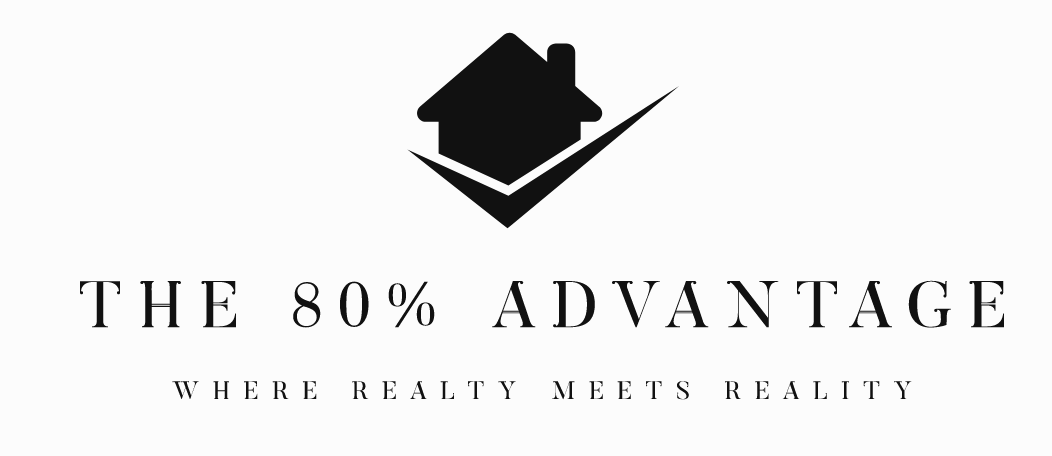Navigating the Tightrope
Christopher Haynes • October 6, 2023
Credit Management During the Mortgage Process
Embarking on the journey to homeownership? One of the most vital aspects to keep a keen eye on is your credit. Your credit score doesn't just determine if you get the mortgage; it could also decide the rate you're offered. As you prepare to make one of life's most significant investments, understanding credit management becomes pivotal. Here's a guide to maintaining, managing, and being prudent with credit during the mortgage process.
1. The Majesty of the Credit Score
Your credit score is like a financial fingerprint. Lenders view it as a reflection of your fiscal responsibility. It's a culmination of your financial choices, from the credit card bill you forgot to pay in college to the auto loan you're currently paying off.
Quick Tip: Check your credit report from all three major bureaus for discrepancies. Mistakes can happen, and you have the right to correct them!
2. Balance is Key
Contrary to popular belief, you don't need to be debt-free to have an excellent credit score. It's more about how you manage that debt. Lenders use the credit utilization ratio, which is the balance you owe compared to your credit limits. A lower ratio is seen favorably, implying you haven't maxed out your cards.
Smart Strategy: Aim to keep your credit card balances below 30% of their limits. If you have a card with $10,000 as the limit, try not to carry a balance of more than $3,000.
3. Temptations During the Mortgage Process
You've found the house of your dreams, and now you're thinking of the new furniture or maybe a car to park in that spacious garage. While these are exciting prospects, taking on new credit during the mortgage process can be perilous.
Golden Rule: Postpone making significant purchases on credit until after closing on your home. New debts could change your debt-to-income ratio and affect your loan approval or terms.
4. Consistency is Your Ally
Consistent, on-time payments bolster your credit score. A single missed or late payment can cause a significant dip, especially if your score is high.
Remember: Set up reminders or auto-pay features to ensure you never miss a due date.
5. The Waiting Game
Every time a lender pulls your credit, it's termed a "hard inquiry." These can temporarily decrease your score. During the mortgage process, it's best to avoid activities leading to hard inquiries, like applying for a new credit card or loan.
Pro Tip: When shopping for mortgage rates, ensure all lenders make their inquiries within a short time frame. Credit scoring models count multiple hard inquiries of the same type within a specific period (usually 14-45 days) as a single inquiry.
6. Communication is Crucial
If you face challenges like an unexpected medical bill, communicate with your creditors. Often, they're willing to work out a payment plan, which could prevent negative marks on your credit report.
In Conclusion:
Walking the mortgage path requires vigilance with credit. While it might seem stringent, these practices safeguard your financial future. After all, a dream home coupled with a favorable mortgage rate, thanks to an excellent credit score, is the ultimate reward for your diligence. So, as you step into the world of mortgages, wear your credit knowledge as armor and march confidently towards your dream abode.

In the world of personal finance, the term 'debt' often carries a negative connotation. Yet, when harnessed wisely, certain types of debt can act as powerful levers for building wealth. Mortgage debt, used strategically in the realm of real estate, stands as a prime example. Understanding 'Good Debt' Before diving deep, it's essential to understand the distinction between 'good' and 'bad' debt. Bad debt typically drains your wealth. It's often associated with high-interest rates and depreciating assets, like credit card debt used for consumption. Conversely, good debt can be an investment that grows in value or produces income. Mortgage debt for real estate investment often falls into this category. The Power of Leverage One of the primary advantages of mortgage debt in real estate is the concept of leverage. Simply put, leverage allows you to control a large asset with a relatively small amount of your own money. For instance, with a 20% down payment, you can own a property that's worth five times that amount. This means that if the property appreciates in value, your returns are based on the total value of the property, not just your down payment. Cash Flow and Rental Income Investing in rental properties with mortgage debt can produce consistent cash flow. When you rent out the property, the monthly rental income can cover the mortgage payments and potentially yield a profit. This monthly income stream, coupled with potential tax benefits like depreciation, can lead to a favorable ROI, even before considering property appreciation. Building Equity Every time you make a mortgage payment, a portion goes towards the principal balance, slowly increasing your ownership in the property, known as building equity. Over time, as you pay down the loan and if the property appreciates, your equity grows, expanding your net worth. Tax Benefits Mortgage interest, especially in the early years of a loan, typically constitutes a significant portion of the monthly payment. In many jurisdictions, this interest is tax-deductible, reducing your taxable income. Additionally, other real estate-related expenses, like property taxes and some maintenance costs, can also offer tax deductions. Considerations and Risks While mortgage debt offers numerous advantages, it's not without risks: - Market Fluctuations: Real estate values can go down as well as up. Leverage magnifies returns, but it also amplifies losses. - Interest Rate Variability: If you have an adjustable-rate mortgage, rising interest rates can increase your monthly payments. - Management Overhead: Especially in rental properties, being a landlord requires time, effort, and sometimes additional expenses. - Liquidity: Real estate is not as liquid as other investments. Selling a property can take time, and there may be significant transaction costs. Conclusion Using mortgage debt to invest in real estate offers a unique blend of leverage, potential cash flow, and tax benefits that can be a powerful tool in wealth creation. However, as with all investments, it's essential to do thorough research, understand the local real estate market, and be aware of the associated risks. When approached judiciously, real estate, bolstered by mortgage debt, can be a cornerstone in a diversified wealth-building strategy.

The decision to purchase a home is not only one of the most exciting milestones in life but also one of the most financially significant. Beyond the immediate considerations like down payment and interest rates, there lies a myriad of other factors that potential homeowners often overlook: the inevitable financial fluctuations of the future. Understanding and preparing for these variations can make a profound difference in one's financial stability and overall home-buying experience. In this article, we dive deep into the importance of factoring in potential future financial changes when calculating mortgage affordability. 1. The Inevitability of Interest Rate Changes Most people are acutely aware of their mortgage interest rate at the time of their home purchase, but many forget that rates, especially if you're on a variable mortgage, can change. Global economic conditions, national economic health, and central bank policies are just a few factors that influence these rates. Actionable Insight: If you're considering a variable rate mortgage, evaluate your financial flexibility to handle potential increases in interest rates. A good rule of thumb is to ensure you could still manage your monthly payments even if rates increased by 2-3%. 2. Rising Living Costs Inflation is a natural economic phenomenon where the price of goods and services tends to rise over time. This extends to property taxes, utilities, homeowner's insurance, and even maintenance costs. Actionable Insight: Research the average annual inflation rate in your country over the past decade. Use this as a guide to incrementally increase the expected yearly costs associated with your home. A cushioned budget can protect you from unexpected spikes in living costs. 3. Potential Major Repairs and Replacements Appliances wear out, roofs need replacing, and sometimes unexpected repairs, like foundation issues, can crop up. It's essential not only to have an emergency fund in place for these expenses but also to anticipate their occurrence. Actionable Insight: Consider setting aside a dedicated home repair and replacement fund. Regularly contribute to this fund, even if it's a small amount, to ensure you're financially prepared when larger repairs are needed. 4. HOA Fees and Community Assessments If you live in a community with a Homeowners' Association (HOA), it's not uncommon for fees to rise. Moreover, unexpected community improvements, like a new community pool or gym, can result in assessments where homeowners need to contribute a lump sum. Actionable Insight: Stay engaged with your HOA and be proactive in understanding their financial health and upcoming projects. This involvement can provide some foresight into potential fee increases or assessments. In Conclusion A home is more than just a structure; it's an investment in your future. By anticipating potential financial fluctuations and planning for them, homeowners can ensure they remain financially stable and enjoy the comfort of their home without the stress of unexpected costs. As the saying goes, "Hope for the best, but prepare for the worst." A well-rounded financial plan that accounts for both the predictable and unpredictable aspects of homeownership can provide peace of mind, security, and long-term satisfaction. Embrace the joy of your home, but always keep an eye on the horizon, ensuring that no financial storm can unsettle your foundation. The true value of a home isn't just in its walls and floors but in the security and stability it provides to its inhabitants. Plan wisely, and your home will be a haven of comfort and financial peace for years to come.

In the intricate dance of home buying, the number that often captures the most attention is the headline figure: the home's sale price. Yet, for many homeowners, especially first-timers, the real lessons lie in the fine print. When setting a budget for a new home, potential homeowners are often advised to account for the mortgage payment. However, there's wisdom in taking a more conservative approach by overestimating these expenses. Here's why and how. 1. The Unexpected is Expected A fundamental truth of homeownership is that unexpected expenses emerge. From sudden repairs to overlooked annual fees, costs can creep up without warning. By overestimating your regular expenses, you're setting up a buffer for those unforeseen financial challenges. It's always better to be pleasantly surprised by extra money in the bank than to be caught short. 2. Changing Market Dynamics Property taxes, home insurance premiums, and even homeowners' association (HOA) dues aren't static. These figures can (and often do) increase over time. While your fixed-rate mortgage payment might stay constant, these other associated costs may not. Overestimating these expenses from the onset ensures you’re not blindsided by incremental hikes. 3. Comprehensive Cost Consideration When people think about their home expenses, the mortgage payment is often the only figure that comes to mind. However, homeownership encompasses a multitude of other costs: maintenance, utilities, possible homeowner association dues, and more. By broadening your expense estimation, you're accounting for the full spectrum of homeownership costs, not just the principal and interest. 4. The Psychological Ease There’s a certain psychological comfort in overestimating. When you budget for more than what you end up needing, you alleviate the monthly stress of scraping together payments. This peace of mind can't be quantified, but it’s invaluable. 5. Flexibility for the Future Your financial situation today might not be your financial situation tomorrow. By overestimating your expenses now, you're giving your future self more flexibility. Whether it’s a change in employment, growing family needs, or new financial goals, an overestimation approach provides breathing room for adjustments. Closing Thoughts In the landscape of homeownership, the path is rarely a straight line. The terrain is filled with unexpected turns and undulations. By overestimating your expenses, you're not being pessimistic; you're being prepared. It's a strategic move, one that balances optimism with realism and dreams with pragmatism. Remember, a home is more than a purchase; it's a commitment. Equip yourself with a budgeting strategy that stands the test of time, and you’ll find not just financial security, but also the peace of mind that comes with it.

When venturing into the realm of homeownership, one of the most pivotal elements you'll encounter is the monthly mortgage payment. This sum, which will become a recurring staple in your financial life, is more intricate than it might initially appear. It's essential to thoroughly understand each component that constructs this monthly obligation. By doing so, you can navigate your homeownership journey with increased confidence and clarity. 1. Principal: The principal is the actual amount you borrowed to purchase your home. Each month, a portion of your mortgage payment goes towards reducing this principal amount. Initially, only a small part of your monthly payment is applied to the principal, but this proportion increases over the lifespan of the loan. 2. Interest: Interest is essentially the cost of borrowing money. The rate can vary based on multiple factors, including economic conditions and your credit score. Especially during the initial years of the loan term, a significant portion of your monthly payment will be dedicated to covering interest costs. 3. Property Taxes: Local governments assess property taxes, and these funds often go towards community amenities like schools, parks, and infrastructure. The amount is typically based on your home's assessed value and can change over time, usually annually. Some homeowners choose to include their property taxes in their monthly mortgage payment through an escrow account, which the lender then uses to pay the taxes on their behalf. 4. Homeowner's Insurance: This insurance covers potential damages to your home from unforeseen events like fires or storms. Lenders generally require borrowers to have homeowner's insurance to protect the investment. Much like property taxes, homeowners can also opt to pay this insurance through an escrow account. 5. Private Mortgage Insurance (PMI): If your down payment is less than 20% of the home's purchase price, your lender might require PMI. This insurance protects the lender in case the borrower defaults on the loan. Once you've achieved 20% equity in your home, you can typically request to have the PMI removed. 6. Homeowner Association (HOA) Fees: If your property is within a homeowners association, you might be obligated to pay HOA fees. These fees cover the maintenance of common areas and other shared amenities within the community. In Conclusion: Deciphering your monthly mortgage payment can initially seem daunting, but breaking it down component by component illuminates its structure. Knowledge truly is power in this context. By understanding where your money is going and why, you can make more informed decisions about your finances and your future in homeownership. Whether it's deciding to refinance, adjust escrow contributions, or even just creating a budget, a comprehensive comprehension of your monthly mortgage components is invaluable.

Life’s unpredictability is its only constant. While we embrace every joyous moment, there's merit in preparing for the unexpected, ensuring our loved ones are always safeguarded. This is where the profound essence of life insurance emerges. Let's delve into its significance and how our expertise can guide you through this crucial journey. 1. The Bedrock of Financial Security Life insurance isn't just a policy; it's a promise. A promise that, come what may, your family's financial security remains untouched. It ensures that mortgages get paid, children's education funds flourish, and day-to-day expenses are met, even in your absence. 2. A Tool Against Debt Leaving behind debt can be a daunting burden for your loved ones. Life insurance provides that safety net, ensuring your family isn't left grappling with outstanding loans, credit card debts, or other financial obligations. 3. Versatility in Purpose Modern life insurance isn't just about death benefits. Policies with living benefits can provide funds during critical illnesses, accidents, or certain life events. It's both a shield for the future and a safety net for the present. 4. Crafting Legacies Life insurance can be a cornerstone in estate planning, offering tax benefits and ensuring that your wealth is seamlessly passed on to your heirs, creating a lasting legacy. 5. Peace of Mind, Priceless The emotional quotient of life insurance is immeasurable. The tranquility of knowing your family's future is protected, regardless of life's twists and turns, provides unmatched peace. How We Elevate Your Life Insurance Journey: Tailored Solutions: We understand that every individual's needs are unique. Our team dives deep to craft policies tailored to your specific requirements. Holistic Approach: Beyond just life insurance, our expertise spans across various products with living benefits, ensuring comprehensive coverage. Transparent Conversations: The world of insurance can be intricate. We demystify it for you, ensuring transparent, candid conversations. Ongoing Support: Our relationship doesn’t end with policy issuance. We're here for every query, every update, and every life change, ensuring your coverage remains optimal. In Conclusion: Life insurance is the silent hero weaving the fabric of financial security for families. It stands as a testament to love, care, and foresight. And while its significance is universal, the journey to find the perfect policy is deeply personal. That's where we come in, hand-holding you through decisions that shape the future well-being of those you cherish most. Because at the heart of it all, life insurance is truly love, insured.

The allure of real estate as an avenue for building wealth is undeniable. Beyond the tangible charm of owning a piece of land, real estate presents an incredible opportunity for financial growth. However, diving into this vast ocean without a map can be risky. Here's your guide to harnessing the power of real estate and paving your golden path to financial prosperity. 1. Understanding the Real Estate Game Real estate isn't just about buying a piece of land or property. It's about understanding market dynamics, growth potential, and return on investment. Start by researching emerging neighborhoods, historical price trends, and local development plans. Golden Nugget: Always remember the old adage, "Location, location, location." A well-located property can be a gold mine, even if it's not the grandest in the lot. 2. Start Small and Scale You don't have to buy a mansion to begin. Start with what you can afford—even if it's a single-bedroom apartment or a small plot. The key is to get your foot in the door. Pro Tip: Consider "house hacking"—buying a multi-unit property, living in one unit, and renting out the others. It's a fantastic way to offset mortgage costs. 3. Diversify Within Real Estate Like any investment, diversification within real estate can cushion against market downturns. Think residential properties, commercial spaces, vacation rentals, and even vacant lands. Smart Strategy: Consider REITs (Real Estate Investment Trusts) for a more hands-off investment approach. They allow you to invest in diverse real estate portfolios without the need for direct property ownership. 4. Leverage Your Investments Real estate's power lies in its potential for leveraging—using borrowed capital to increase the potential return of an investment. A 20% down payment means you control a significantly larger asset without paying its full price upfront. Remember: While leverage amplifies returns on investment, it can also increase losses. Always assess your risk appetite. 5. Keep an Eye on Your Finances Building wealth through real estate requires meticulous financial planning. Ensure your debts are manageable, maintain a good credit score for favorable loan terms, and always have an emergency fund. Golden Rule: Aim for properties where the rental income covers the mortgage payment, maintenance costs, and still leaves a profit. 6. Continuous Learning The real estate landscape is ever-evolving. Stay informed. Attend seminars, join real estate groups, read books, and network with experienced investors. 7. Patience is Your Ally Real estate isn't a get-rich-quick scheme. It's a long-term play. Market downturns might be disheartening, but remember, real estate values historically trend upward over the long run. 8. Consider Tax Implications Real estate provides various tax benefits, from deductions on mortgage interest to depreciation on rental properties. Consult with a tax advisor to maximize these benefits. In Closing: Building wealth through real estate is as much an art as it is a science. It requires dedication, knowledge, and an appetite for calculated risks. As you embark on this journey, remember that every mogul started with a single step—a single property. With patience and perseverance, the mosaic of your real estate empire will come together, brick by brick, property by property. Welcome to the world where fortunes aren't just made—they're built.

The path to homeownership, while exhilarating, can be filled with complexities. However, having a tailored approach can not only simplify the journey but also provide a unique financial edge. Let’s explore this transformative experience step by step. 1. Initial Consultation & Clarity: Before diving into house-hunting, gain a clear understanding of your financial standing. A certain advantage can help you visualize the bigger picture, setting you up for a more empowered property search. 2. Informed House Hunting: With clarity on your finances, explore properties that match your aspirations. An informed realtor partnership can subtly amplify your buying power, ensuring you consider homes that align with your goals and budget. 3. Placing Your Offer: Once you've found your desired property, it's time to make an offer. Leveraging specific insights can make your offer attractive to sellers, ensuring you stand out. 4. Streamlined Mortgage Application: Upon acceptance, you'll move to the mortgage application phase. Here, a holistic understanding of both property value and financial structures can expedite the process, ensuring you're ahead at every step. 5. Inspection & Appraisal Insights: Property inspections and appraisals are integral. Having a nuanced approach during these stages ensures you're getting value for your investment while preempting potential future issues. 6. Smooth Underwriting Process: When your loan enters underwriting, having a subtle edge can influence outcomes positively. A comprehensive view of the property and financial scenario can pave the way for more favorable terms. 7. Closing with Confidence: The closing process culminates your home buying journey. Here, understanding unique advantages ensures you approach this final step with confidence and clarity. 8. Settling into Your New Home: With the keys in hand and the process behind you, it’s time to celebrate and settle into your new abode, reflecting on a journey made smoother by informed decisions and a tailored approach. While the road to homeownership has its intricacies, knowing that there's a distinct advantage working quietly in the background can transform the experience, making it as rewarding as the destination itself.

An Intricate Dance of Growth and Challenge Real estate, often heralded as a cornerstone of modern economics, plays a multi-faceted role in shaping a country's financial landscape. Its influence goes beyond just buying and selling properties. The real estate market can dictate the health, growth, and even challenges within an economy. Let's delve deep into this intricate relationship. 1. Economic Barometer: Real estate often acts as a barometer of economic health. A robust real estate market generally indicates strong consumer confidence and purchasing power. Conversely, a sluggish market can signal economic downturns, decreased consumer spending, and even looming recessions. 2. Employment and Economic Growth: From construction workers to real estate agents, the housing market directly and indirectly creates millions of jobs. It also fuels related industries like home goods, appliances, and services. A healthy real estate market can therefore significantly boost employment rates and drive economic growth. 3. Interest Rates and Real Estate: Central banks often manipulate interest rates to control inflation and stabilize the economy. These rates directly impact mortgage costs. Lower interest rates can encourage borrowing and investing in real estate, while higher rates can slow down the market. 4. Tax Revenue Generation: Property taxes are a significant revenue source for local governments, funding crucial services like education, health, and infrastructure. As property values rise, so does tax revenue, allowing for better public services and infrastructure development. 5. The Wealth Effect: As property values rise, homeowners experience an increase in wealth, at least on paper. This perceived wealth can lead to increased consumer spending, driving economic growth. Conversely, a decline in property values can result in reduced consumer spending, affecting the broader economy. 6. Real Estate and Financial Markets: Mortgage-backed securities, real estate investment trusts, and other property-related assets play pivotal roles in global financial markets. The 2008 financial crisis underscored the domino effect a collapse in real estate values can have on global financial systems. 7. Urban Development and Economic Shifts: The real estate market can influence urban development patterns. Rising property values in cities can lead to gentrification, affecting local businesses and demographics. Conversely, declining values can result in urban decay. Such shifts can determine the economic prosperity of entire regions. 8. Foreign Investments and Global Economies: Real estate can also serve as a magnet for foreign investment. Thriving property markets can attract overseas investors, bringing in foreign capital, influencing currency values, and even impacting diplomatic relationships. In conclusion, the relationship between real estate and the economy is deep-rooted, multifaceted, and critical. While buying a home might be a personal milestone, its implications ripple outwards, influencing local, national, and even global economic landscapes. As markets evolve, understanding this dynamic interplay becomes crucial for policymakers, investors, and the general populace alike.

In the ever-evolving landscape of real estate, it’s not just about buying a house; it's about crafting a comprehensive financial strategy that aligns with one's dream of homeownership. This fusion of mortgage know-how with realty insight is revolutionizing the home-buying journey. Let's delve into why this dual expertise approach offers an unparalleled advantage. 1. Streamlined Processes: Often, the home-buying journey is fragmented. You deal with one party for the home search and another for financing. By integrating these two processes, you enjoy a seamless, efficient, and far less stressful journey. 2. Improved Communication: Communication gaps can delay or derail property deals. With dual expertise, there’s a synchronized flow of information, ensuring every step, from property selection to loan approval, proceeds without a hitch. 3. Financial Clarity from Day One: Knowing your financial standing from the outset ensures you look at properties that align with your budget. This not only saves time but also prevents the heartbreak of falling in love with a home that's out of reach. 4. Tailored Property Recommendations: With in-depth knowledge of both your property preferences and your financial situation, recommendations are more tailored. This means viewing homes that match both your dream criteria and your wallet. 5. Negotiation Power: A clear understanding of mortgage processes can be leveraged during property negotiations. Being aware of how property value can influence loan approvals empowers buyers during the negotiation phase. 6. Comprehensive Market Insight: This dual approach offers a panoramic view of the real estate market. You benefit from both macro insights (like market trends) and micro insights (like the mortgage implications of choosing one property over another). 7. Saving Opportunities: Mortgage knowledge can unearth saving opportunities, from understanding down payment assistance programs to navigating interest rates. This can translate to substantial savings over the life of a loan. In Conclusion: The fusion of mortgage mastery with realty expertise isn't just a trend; it's the future of informed and efficient home buying. As the industry evolves, buyers who harness this dual advantage position themselves for a smoother, savvier, and more satisfying journey to homeownership. Embrace this integrated approach, and redefine your property-buying experience.
